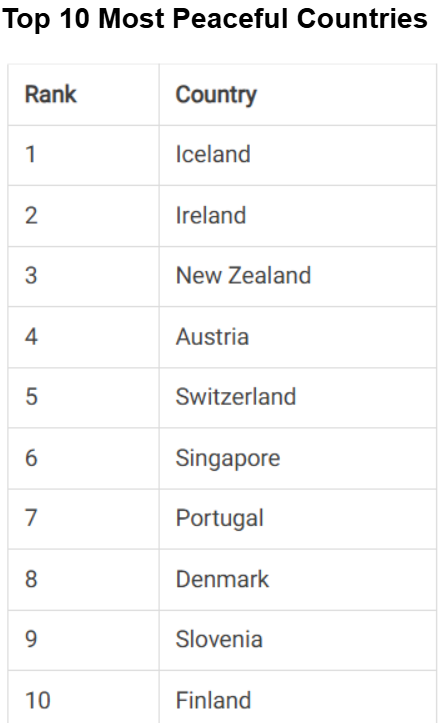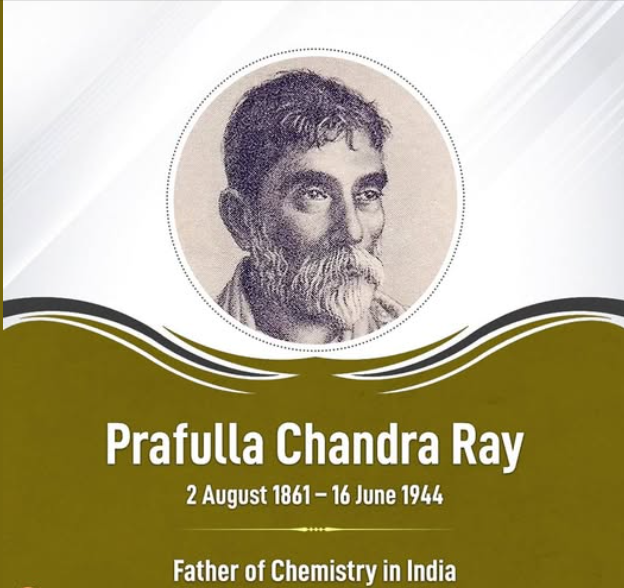Uttar Pradesh Switch to Hindi
UP Cabinet Clears Electronics Parts Manufacturing Policy
Why in News?
In a major step to elevate Uttar Pradesh as a global electronics manufacturing hub, the state cabinet has approved the Uttar Pradesh Electronics Component Manufacturing Policy-2025 (UP ECMP-2025).
Key Features of UP ECMP-2025
- About: The policy aligns with the central Electronics Component Manufacturing Scheme (ECMS), with an investment target of Rs 5,000 crore and the creation of lakhs of jobs.
- Objective: The policy aims to promote the production of 11 key electronic components, including displays, camera modules, and multilayer Printed Circuit Board (PCBs).
- With an estimated investment of Rs 5,000 crore, it is expected to generate both direct and indirect job opportunities, making UP a preferred investment destination.
- Governance Framework: A nodal agency, supported by a policy implementation unit and an empowered committee, will oversee the policy's implementation, ensuring efficient governance and smooth execution of initiatives.
- Timeline: The policy will be effective retrospectively from 1st April 2025, with investments made from this date eligible for policy benefits, extending for six years.
- Incentives: Entrepreneurs will benefit from state-level incentives in addition to central benefits under the ECMS, helping strengthen UP’s electronics supply chain and fostering a self-sustaining ecosystem.
- Significance: The policy will foster innovation in electronics manufacturing and reduce India's import dependency, aligning with the government's vision to strengthen the domestic electronics component sector.


National Current Affairs Switch to Hindi
BHARATI Initiative
Why in News?
The Agricultural and Processed Food Products Export Development Authority (APEDA) has launched the BHARATI initiative, a significant step aimed at empowering agri-tech and agri-food startups.
Key Points
- Purpose and Vision: BHARATI, an acronym for Bharat’s Hub for Agritech, Resilience, Advancement, and Incubation for Export Enablement, seeks to empower 100 startups from the agri-food and agri-tech sectors.
- The initiative aims to accelerate innovation and create new export opportunities, supporting India's target of reaching $50 billion in agri-food exports for scheduled products by 2030.
- Inaugural Pilot Cohort: The first cohort, set to begin in September 2025, will focus on 100 startups, ranging from high-value agri-food producers to technology-driven service providers and innovators.
- Startups working on advanced technologies such as AI-based quality control, blockchain traceability, IoT-enabled cold chains, and agri-fintech will be included.
- Focus Areas for Innovation: BHARATI will target high-value agri-food categories such as GI-tagged products, organic foods, superfoods, novel processed agri-foods, livestock products, and AYUSH products.
- The initiative will also encourage innovative solutions addressing packaging, sustainability, and seafood protocols.
- Export Challenges Addressed: The initiative will focus on resolving key export challenges related to product development, quality assurance, perishability, wastage, and logistics.
- By fostering a collaborative ecosystem it will provide cost-effective solutions to enhance India's competitiveness in the global agri-food market.
- Collaborative Ecosystem & Partnerships: The initiative will work with state agricultural boards, agricultural universities, premier institutions like IITs and NITs, and industry bodies to attract and support startups.
- Existing accelerators will also be leveraged to strengthen the ecosystem.
- Support to Startups: A nationwide awareness campaign will engage stakeholders and attract solution-oriented startups.
- Startups will undergo a three-month acceleration programme focusing on product development, export readiness, regulatory compliance, and market access.
- Alignment with Government Initiatives: The initiative is aligned with the Government of India’s Atmanirbhar Bharat, Vocal for Local, Digital India, and Start-Up India initiatives.
APEDA was established under the APEDA Act, 1985, and is mandated with the responsibility of export promotion and development of products like Alcoholic and Non-Alcoholic Beverages, Meat and Meat Products, Floriculture Products, etc.


National Current Affairs Switch to Hindi
Global Peace Index (GPI)
Why in News?
India has been ranked 115th in the recently released Global Peace Index 2025, while Iceland continues to hold the top position as the most peaceful country.
Key Points
- About: The Global Peace Index (GPI), published annually by the Institute for Economics & Peace, ranks countries based on 23 indicators, including militarization, external conflicts, homicide, and terrorism.
- The GPI 2025 analyzed 163 countries, representing 99.7% of the world’s population.
- As per GPI 2025, the number of state-based conflicts has reached its highest level since World War II, with new conflicts emerging in 2025.
- 2025 Ranking: Iceland, Ireland, and New Zealand are ranked among the world's most peaceful nations, with Iceland holding the top spot since 2008.
- The least peaceful countries, as per the GPI 2025, are Russia, Ukraine, Sudan, the Democratic Republic of the Congo, and Yemen.
- Singapore remains the only Asian country in the top 10, maintaining high safety levels despite substantial military spending.
- India ranks 115th(116th in 2024), while Pakistan stands at 144th, showcasing a significant gap in security between the two nations.


Uttar Pradesh Switch to Hindi
UP Approves Export Promotion Policy 2025-30
Why in News?
The Uttar Pradesh Cabinet has approved the new Export Promotion Policy for 2025-30, which is designed to address the challenges faced by exporters and encourage growth in various sectors.
Key Features of the Policy
- Objective: The Export Promotion Policy 2025-30 aims to create a robust export ecosystem in Uttar Pradesh, supporting both new and established exporters, with a goal to double the state’s exports by 2030.
- Sectoral Focus: The policy prioritizes key sectors such as electronics, handicrafts, engineering products, textiles, agricultural products, chemical and pharmaceutical industries, leather goods, sports equipment, glass, ceramics, and service sectors like IT, education, medical, tourism, and logistics.
- One District One Product (ODOP) Focus: The policy emphasizes boosting exports of ODOP items, aligning with the state’s focus on promoting indigenous products.
- Incentives: The policy will provide special incentives to new exporters and startups, including the following provisions:
- Financial Assistance: Up to ₹1 lakh for digital marketing and product cataloguing.
- Virtual Fairs: Up to ₹25,000 for organizing virtual exhibitions.
- Export Certification: Coverage of 75% or up to ₹25 lakh for international product certifications.
- Performance-Based Incentives: Exporters will benefit from export performance-based incentives, including grants for export credit insurance assistance and ECGC coverage expenses, aimed at enhancing export performance.


Uttar Pradesh Switch to Hindi
India's 1st Tempered Glass Manufacturing Facility in Noida
Why in News?
Union Minister of Electronics and Information Technology, Shri Ashwini Vaishnaw, inaugurated India’s first Tempered Glass Manufacturing Facility for mobile devices in Noida, Uttar Pradesh.
Key Points
- About: It will produce high-quality tempered glass under the globally recognized brand “Engineered by Corning” in collaboration with Optiemus Electronics (an Indian telecommunications and manufacturing enterprise) and Corning Incorporated, USA.
- Demand: The facility will meet the growing demand for tempered glass, a key mobile phone accessory, serving both domestic and international markets.
- India’s domestic market for tempered glass is estimated to exceed 500 million units, with a retail value of approximately ₹20,000 crore, while the global market stands at over USD 60 billion.
- Investment: Phase 1 of the Noida facility, with an investment of ₹70 crore, will have a capacity of 25 million units per annum, generating direct employment for over 600 people.
- Phase 2, which will scale up capacity to 200 million units per annum, will involve an additional investment of ₹800 crore and create over 4,500 direct job opportunities.
- Significance: Over the past 11 years, India’s electronics production has reached ₹11.5 lakh crore, with ₹3 lakh crore in exports and 2.5 million jobs created, marking a significant step in strengthening the sector and advancing the Make-in-India initiative.


National Current Affairs Switch to Hindi
Acharya Prafulla Chandra Ray
Why in News?
On the 164th birth anniversary of Acharya Prafulla Chandra Ray, the pioneer of modern chemistry in India, various commemorative activities were organised.
Key Points
- About: Prafulla Chandra Ray (1861–1944), often hailed as the “Father of Indian Chemistry,” was a pioneering scientist and educator who is regarded as one of India’s earliest modern chemical researchers.
- Trained at the University of Edinburgh, Ray spent many years at Presidency College and Calcutta University.
- Work:
- He is credited with discovering the stable compound Mercurous Nitrite in 1895.
- A staunch nationalist, Ray was committed to advancing Bengali enterprise and established the Bengal Chemical and Pharmaceutical Works in 1901.
- Ray was an active supporter of the Swadeshi Movement of 1905 and considered the use of Bideshi articles a crime of treason against India.
- Ray opposed the caste system and other irrational social practices, actively promoting social reform until his death.
- Awards and Recognitions:
- Honored by the British Government, he received the title of Companion of the Indian Empire (CIE) and then with the Knighthood in 1919.
- In 1920, he was elected General President of the Indian Science Congress.
- In recognition of his contributions, India Post issued a postage stamp in his honor on 2nd August 1961, marking his birth anniversary.







 PCS Parikshan
PCS Parikshan



